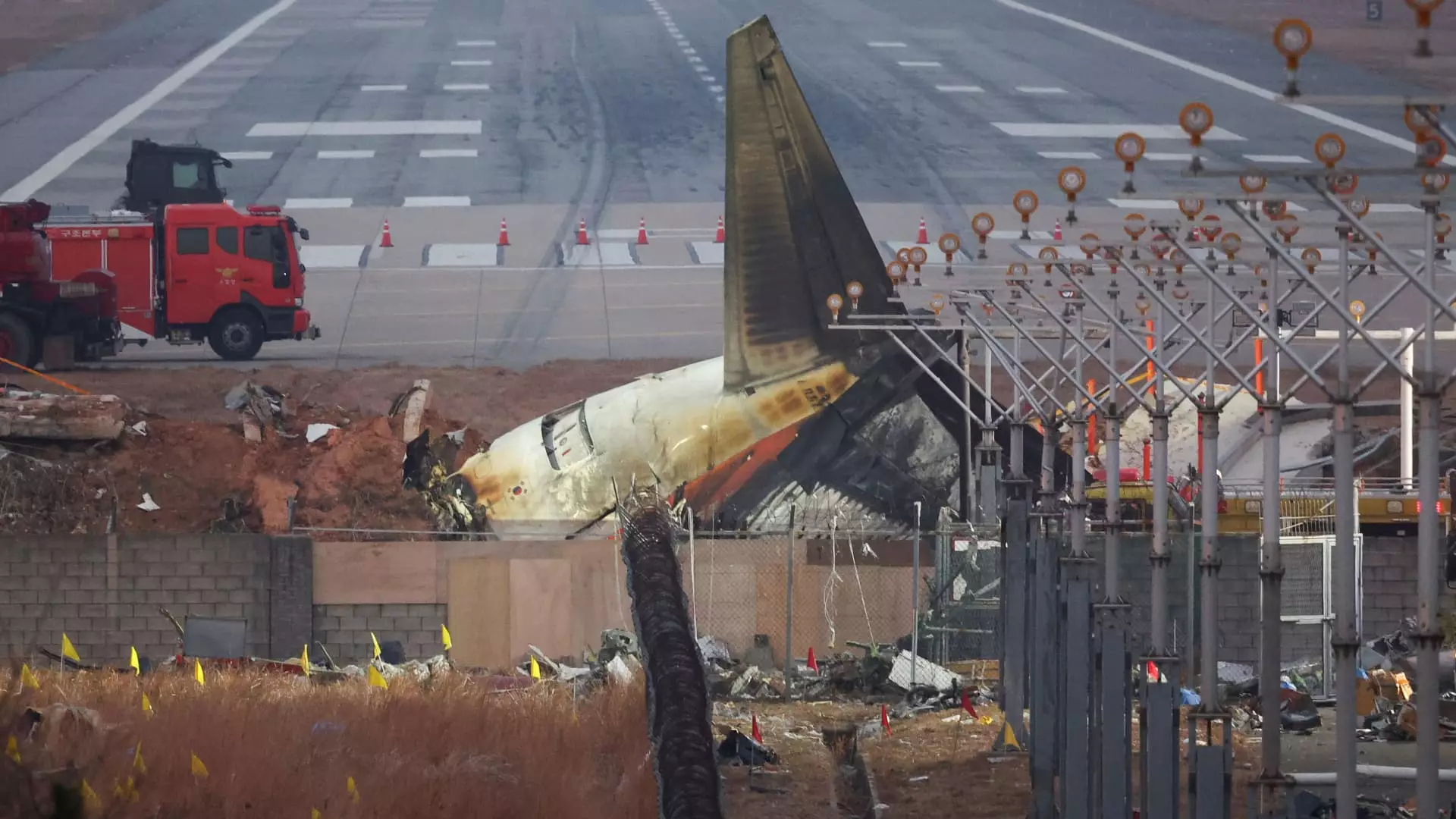The aviation industry is one characterized by an unparalleled emphasis on safety, yet incidents like the recent Jeju Air crash serve as stark reminders of how quickly stability can unravel. The tragic accident that took place over the weekend, resulting in the loss of 179 lives out of 181 on board, is a pivotal event that has not only sent shockwaves through South Korea but also has broader implications for global aviation. With the South Korean government now mandating a comprehensive inspection of all Boeing 737-800 aircraft operated by domestic airlines, the immediate response to this tragedy highlights the dire need to investigate and mitigate risks associated with commercial air travel.
In the wake of the crash, South Korea’s acting president, Choi Sang-mok, has ordered an emergency inspection of the nation’s entire airline operational framework. The Ministry of Land, Infrastructure, and Transport (MOLIT) has committed itself to a “comprehensive special inspection” of the 737-800 aircraft. Investigators are focusing on the events leading up to the disaster, including a bird strike warning issued shortly prior to the incident, as well as a “go-around” call made by the pilot amidst attempts to navigate a safe landing. The immediate retrieval and analysis of the black boxes from the wreckage is essential in piecing together the flight’s final moments, and the involvement of U.S. investigators indicates the gravity and international interest surrounding the case.
The Boeing 737-800, a variant of the widely used 737 series, boasts a history of safety and reliability, being in operation for nearly three decades. With a significant market presence, it comprises about 17% of the active global jet fleet, within which around 4,400 units are currently flying. Despite some infamous incidents involving the later 737 Max models, experts assert that mechanical or design flaws are unlikely culprits in this case. Rather, attention is now drawn toward operational aspects such as maintenance records and pre-flight checks, indicating a need for stringent compliance with safety protocols.
The Corporate and Economic Repercussions
Boeing’s shares took a notable hit following the announcement of the investigation, losing more than 2% in value. Meanwhile, Jeju Air’s stock plummeted to an all-time low, resulting in an astounding 8.65% decrease in value. Such fluctuations highlight how aircraft accidents can have immediate financial ramifications, unsettling investors and raising questions about operational oversight. Boeing has publicly stated its readiness to assist Jeju Air and has extended condolences to those affected by the tragedy. However, their reputation — and that of their aircraft — rides on the ability to demonstrate that industry standards have been upheld throughout.
The Broader Implications for Aviation Regulation
As an arm of its investigative actions, MOLIT has announced a review of regulations concerning bird strikes, signifying a proactive shift in regulatory frameworks regarding aviation safety. This shift is crucial, as safety practices have historically evolved post-incident. While expertise in aviation safety emphasizes the importance of learning from disasters, the challenge lies in ensuring that such lessons translate into actionable change to prevent future fatalities.
With 200 airlines relying on the Boeing 737-800 within the past year, the stakes of this investigation extend beyond South Korea. As regulatory bodies across the globe monitor the outcome, analogous risks may prompt other countries to revisit their aviation regulations, particularly as new airports are developed. The aviation sector faces the dual challenge of enhancing safety while simultaneously ensuring operational efficiency, an equilibrium that is increasingly complex to achieve.
The Jeju Air incident serves as a rallying point for stakeholders within the aviation industry to reassess existing safety protocols. Airlines must scrutinize their maintenance records with unprecedented rigor, while aircraft manufacturers like Boeing must prioritize transparency regarding product safety. The focus on compliance must not serve merely as a checklist for regulatory adherence, but as a genuine commitment to safeguarding human lives.
The broader aviation community, from regulators to manufacturers, is called upon to foster a culture of safety that transcends mere compliance. Educating personnel on risk assessment, as well as reinforcing the importance of reporting unsafe conditions without fear of repercussions, will be vital. Ultimately, while the Jeju Air tragedy is a devastating loss, it has the potential to instigate transformative changes in aviation safety that could protect future generations of passengers and airline personnel alike.

